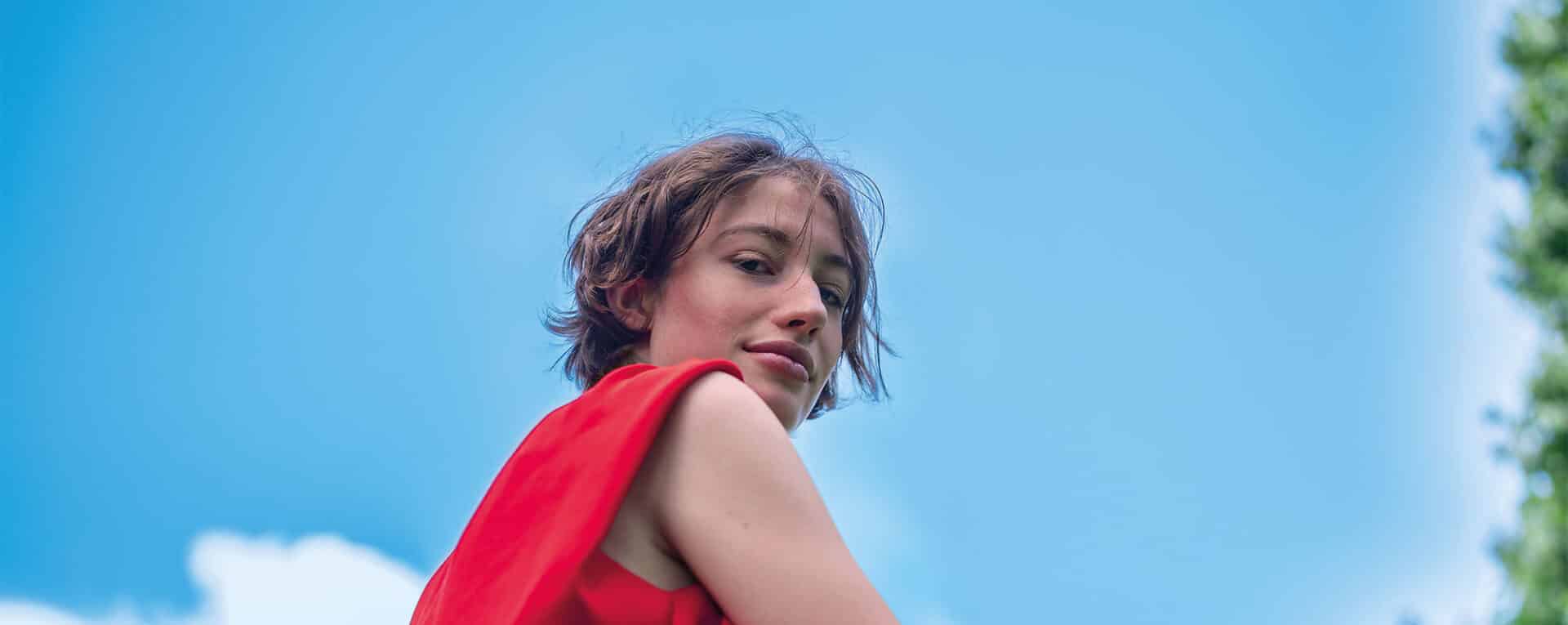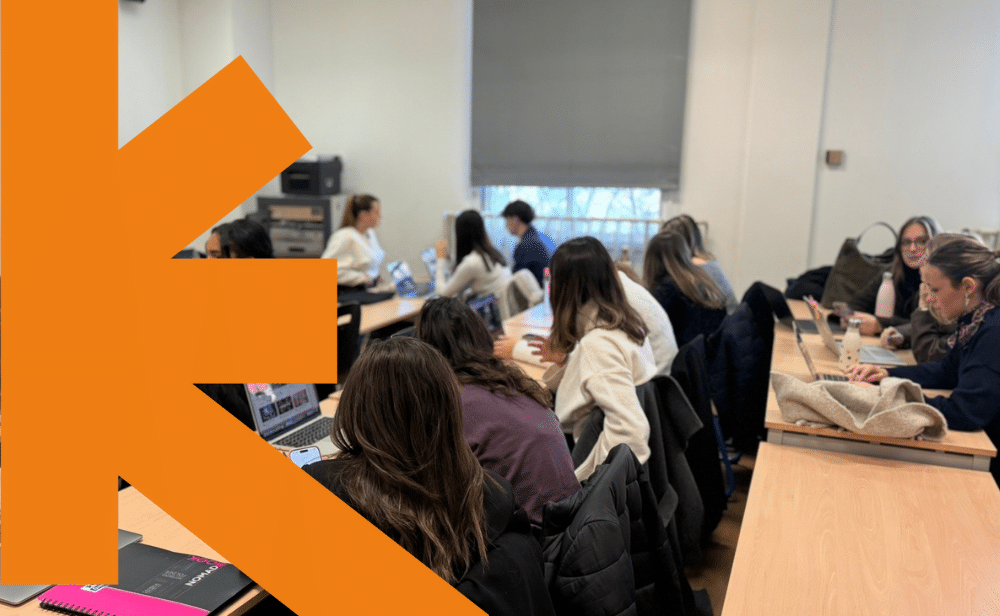

- Clermont School of Business
- International
- Study with us
- Programs
- Bachelor in International Management
- Bachelor in Digital Marketing & E-Commerce Management
- Master in Management
- Programme Grande Ecole online
- MSc – Master of Science Business Intelligence & Analytics
- MSc – Master of Science Corporate Finance and Fintech
- MSc – Master of Science Digital Marketing & Artificial Intelligence
- MSc – Master of Science International Commerce & Digital Marketing
- MSc – Master of Science Project Management
- MSc – Master of Science Procurement & Supply Chain Management
- Doctorate of Business Administration (DBA)
- Executive Education (French only)
- Discover the Master in Management majors
- International Students
- Summer School
- Tools & pedagogical support
- Programs
- Faculty & Innovation
- Company & Career
- News & Events
5 questions to Robin JUND, Director of CSR and the Groupe ESC Clermont Foundation
The ‘Reveal 2022-2027’ strategic plan is based on two major objectives: to reinforce the attractiveness and competitivity of ESC Clermont BS and to improve CSR (Corporate Social Responsibility). Since September, Robin JUND, Director of the ESC Group Foundation and Director of CSR, has been in charge of piloting actions to implement increasingly sustainable and responsible practices.
A school committed to a better world
ESC Clermont Business School’s main ambition is to be the school that will reveal the talents and passions of a new generation of ‘change’ leaders. We aim to train future managers who will give priority to people and the planet throughout the course of their careers. We hope to sensitize our students to contemporary issues and guide them to becoming responsible leaders, committed explorers and inspiring entrepreneurs.
Our vision, which is shared by all our stakeholders (teachers, students, graduates, partners, etc.), and our ability to provide teaching that ‘makes sense’ for society has been earned special recognition in the following rankings:
HappyIndex@Atschool® CSR Ranking | 2022
Ranking of the best schools integrating CSR issues
TOP 5: ESC Clermont Business School is ranked 5th.
Ranking ChangeNOW/Echos START | 2022
Ranking of the schools most committed to ecological transition
TOP 20: ESC Clermont Business School is ranked 19th overall:
– 1st on the “Alumni Network” criterion
– 2nd on the “Involvement of student associations” criterion.
To learn more about the School’s CSR policy and future actions, we invited Robin JUND, Director of CSR and the Groupe ESC Clermont Foundation, to speak about the 5 following points:

YOU ARE THE DIRECTOR OF CSR AND THE ESC CLERMONT BS FOUNDATION; HOW DO THESE TWO MISSIONS COMPLEMENT EACH OTHER?
Very often, CSR is limited to ecological issues. However, CSR is also about social and economic issues. I therefore prefer to talk about Sustainable Development and Social Responsibility (SD&SR), although the term can still be improved. When you combine the three elements together, it becomes obvious that Foundation and CSR complement each other!
YOU ARE IN CHARGE OF STEERING THE DEPLOYMENT OF THE SCHOOL’S DD&RS POLICY. BUT WHAT EXACTLY IS A SD&R POLICY?
The European Commission defines CSR as “the voluntary integration by companies of social and environmental concerns into their business operations and their interaction with their stakeholders”. A CSR policy therefore means rethinking today’s company to reduce its impact on tomorrow’s world by reconciling the economic, social, and environmental dimensions. As a Grande Ecole, we train the actors of change, and it is therefore logical that we act in this sense.
THE DD&RS AMBITIONS OF ESC CLERMONT BS ARE BASED ON 4 MAJOR AXES AND ARE IN LINE WITH THE SCHOOL’S MISSION. CAN YOU TELL US A LITTLE MORE ABOUT THEM?
Our main objective and that of our stakeholders is to contribute towards the construction of a responsible society. To achieve this, the four strategic axes of our SDRS policy are as follows (in no particular order of priority, each reinforcing the other three):
- Education and training: all our education and training must integrate DDRS principles to develop the skills of each individual.
- Research and innovation: our research must integrate these issues and then disseminate them in our teaching, in the socio-economic world, towards public policies, etc.
- Environmental policy: we must limit our consumption of the earth’s resources in all our activities.
- Social policy: we must promote a human and social policy which encompasses the quality of life, equality, and diversity, both for staff and for students.
HOW WILL THESE AMBITIONS BE DEPLOYED? CAN YOU GIVE US A CONCRETE EXAMPLE?
With regard to our environmental policy, for example, we are currently considering the deployment of our mobility plan to all our stakeholders, including our students and partners.
In January, a team of 12 people (half of whom are teacher-researchers) will receive in-house training in carbon assessment, so that we can monitor our low-carbon trajectory as closely as possible. We are also integrating environmental, energy and social criteria into all facility renovation projects, and management.
MANY PROJECTS WILL ENABLE THE SCHOOL TO CONTRIBUTE TO THE CONSTRUCTION OF A RESPONSIBLE SOCIETY, WHAT ARE THE NEXT MAJOR STEPS?
Between now and the end of 2022, we will submit our energy efficiency plan to the Rectorate and Ministry, then deploy and monitor it. Before that, it will be assessed internally by staff and students, and externally by our stakeholders, and adapted to meet everyone’s needs, desires. In fact, we aim to apply the same approach as the one we are currently implementing for our global SDRS policy.
A few days ago, we opened a channel with the USA so that our American donors can also benefit from advantageous tax rebates on funds donated to the Foundation. We must now capitalize on this possibility to increase scholarships awarded to our most modest students.
In terms of teaching and research, we are in the process of mobilizing teacher-researchers (who are already very knowledgeable) so that we can further improve our programs and enrich our courses with research data.
Finally, as I mentioned earlier, we will soon be measuring our carbon footprint and deploying our low-carbon trajectory. This also means rethinking our business trips, our heating methods, our thermal insulation, etc.
Related with




Stay updated with the latest news from Clermont School of Business by subscribing to our newsletter!
Merci ! Vous êtes maintenant abonné(e) à notre newsletter.
Vous recevrez dorénavant notre newsletter mensuelle.
@bientôt
We faced problems while connecting to the server or receiving data from the server. Please wait for a few seconds and try again.
If the problem persists, then check your internet connectivity. If all other sites open fine, then please contact the administrator of this website with the following information.
TextStatus: undefined
HTTP Error: undefined
Some error has occured.
